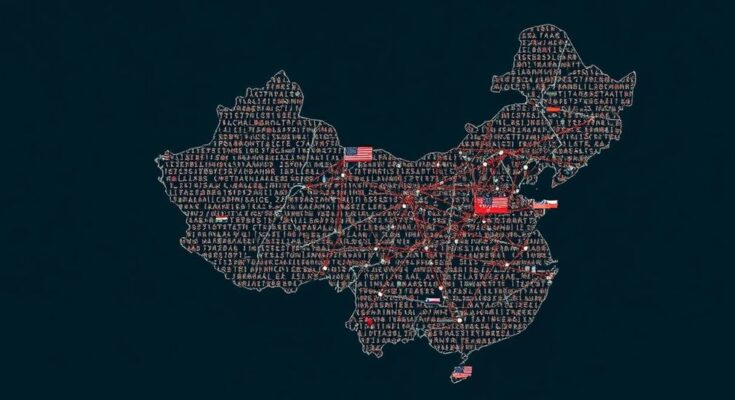The United Nations expresses deep concern over the human rights abuses faced by the Uyghur people in Xinjiang. Despite China agreeing to implement some human rights reforms, many organizations remain unsatisfied with the slow progress. Historical tensions and recent crackdowns have led to widespread allegations of atrocities against the Uyghurs, necessitating urgent international intervention and sanctions.
On August 27, 2024, Ravina Shamdasan, spokesperson for the United Nations Office of the High Commissioner for Human Rights, expressed grave concerns regarding the human rights situation in the Xinjiang Uyghur Autonomous Region (XUAR). She pointed out the ongoing issues stemming from “problematic laws and policies” and emphasized the need for a thorough review, urging Chinese authorities to engage more openly in discussions about these violations. At the UN Human Rights Council meeting on July 4, 2024, China agreed to implement 70% of the human rights reforms recommended by the West concerning the Uyghur population. UNHRC President Omar Zniber noted that human rights conditions are gradually improving in China. Nevertheless, many organizations continue to express frustration over the sluggish accountability measures taken against the Chinese government for alleged violations. Understanding the historical context of the Uyghurs underlines their strained relationship with the Chinese government. Xinjiang, while deemed an autonomous region, has seen heavy governance and control from Beijing, especially after major oil and gas reserves were discovered there. The influx of Han people since the 1950s led to rising tensions, resulting in violent outbreaks in recent decades. The Chinese Communist Party (CCP) has undertaken severe crackdowns on perceived extremism, particularly since 2014, when heightened surveillance measures targeted Uyghurs, blaming them for national security threats. Reports from the OHCHR in 2022 alleged widespread human rights abuses in Xinjiang, mentioning arbitrary detentions that amounted to crimes against humanity. Human Rights Watch highlighted atrocities such as forced sterilizations of Uyghur women, alongside global calls to condemn China’s actions as they significantly infringe on ethnic and religious freedoms. As of February 2022, over half a million Uyghurs allegedly faced legal repercussions under intensely oppressive measures enforced by the state in Xinjiang. During the 73rd committee held in February 2023, when questioned about alleged violations, the Chinese delegation dismissed accusations of wrongdoing. Meanwhile, U.S. Secretary of State Antony Blinken stressed the importance of advocating religious freedom amid such grave concerns about abuse, reinforcing the need for sustained international pressure. Moving forward, the Uyghur Human Rights Project advocates for robust actions from global governance bodies, urging nations to impose sanctions and designate protective measures for Uyghurs seeking asylum. In response, officials have made sweeping denials of any abuse, perpetuating the cycle of misinformation surrounding the human rights crisis.
The plight of the Uyghur people, a Turkic-speaking Muslim minority, has escalated under the Chinese government’s heavy-handed policies in Xinjiang. Historical tensions have been compounded by significant ethnic shifts since the mid-20th century, exacerbating conflicts amid resource-driven interests. The region’s autonomy is overshadowed by strict surveillance and control that have emerged under the pretext of combating religious extremism.
The ongoing human rights crisis in Xinjiang demands urgent international attention and action. The United Nations and global powers face significant challenges in addressing and rectifying China’s actions against the Uyghur people. Advocacy groups continue to push for accountability and highlight human rights violations, calling for sanctions and protective measures for those escaping persecution. The need for collective action remains paramount in safeguarding the rights of vulnerable populations.
Original Source: theowp.org



